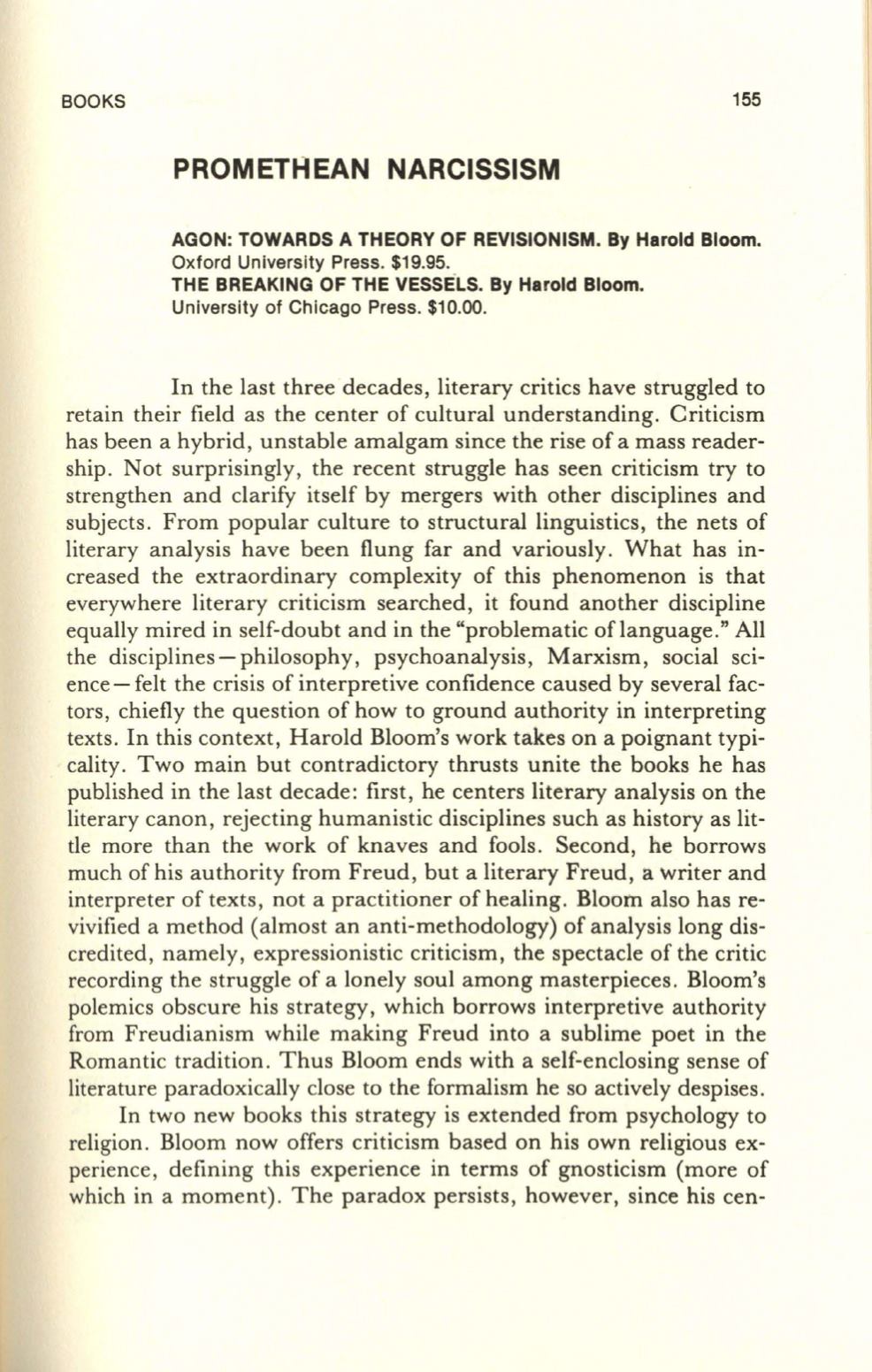
BOOKS
155
PROMETHEAN NARCISSISM
AGON: TOWARDS A THEORY OF REVISIONISM. By Harold Bloom.
Oxford University Press. $19.95.
THE BREAKING OF THE VESSELS. By Harold Bloom.
University of Chicago Press. $10.00.
In the last three decades, literary critics have struggled to
retain their field as the center of cultural understanding. Criticism
has been a hybrid, unstable amalgam since the rise of a mass reader–
ship. Not surprisingly, the recent struggle has seen criticism try to
strengthen and clarify itself by mergers with other disciplines and
subjects . From popular culture to structural linguistics, the nets of
literary analysis have been flung far and variously. What has in–
creased the extraordinary complexity of this phenomenon is that
everywhere literary criticism searched, it found another discipline
equally mired in self-doubt and in the "problematic oflanguage." All
the disciplines - philosophy, psychoanalysis, Marxism, social sci–
ence - felt the crisis of interpretive confidence caused by several fac–
tors , chiefly the question of how to ground authority in interpreting
texts . In this context, Harold Bloom's work takes on a poignant typi–
cality. Two main but contradictory thrusts unite the books he has
published in the last decade : first , he centers literary analysis on the
literary canon , rejecting humanistic disciplines such as history as lit–
tle more than the work of knaves and fools . Second, he borrows
much of his authority from Freud, but a literary Freud, a writer and
interpreter of texts, not a practitioner of healing. Bloom also has re–
vivified a method (almost an anti-methodology) of analysis long dis–
credited, namely, expressionistic criticism, the spectacle of the critic
recording the struggle of a lonely soul among masterpieces. Bloom's
polemics obscure his strategy, which borrows interpretive authority
from Freudianism while making Freud into a sublime poet in the
Romantic tradition. Thus Bloom ends with a self-enclosing sense of
literature paradoxically close to the formalism he so actively despises.
In two new books this strategy is extended from psychology to
religion. Bloom now offers criticism based on his own religious ex–
perience , defining this experience in terms of gnosticism (more of
which in a moment) . The paradox persists, however, since his cen-


